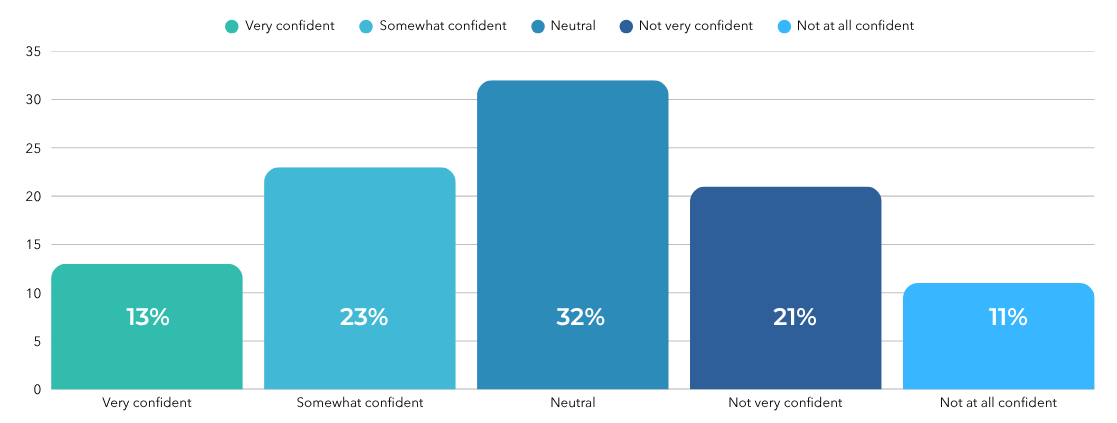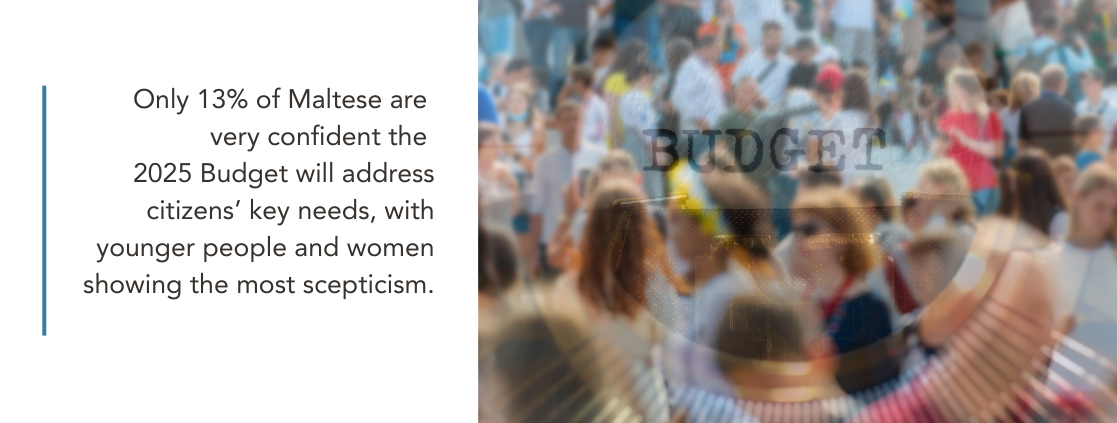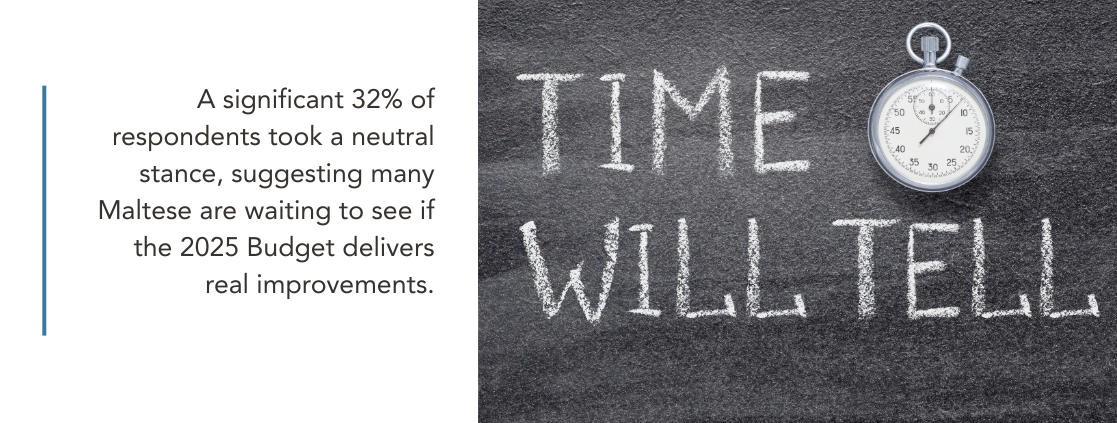While the economy is performing well, younger citizens and women remain sceptical the 2025 budget will deliver, reflecting deeper political and structural concerns.

A survey of 422 Maltese respondents carried out by EMCS Advisory Ltd reveals a cautious public mood toward the government’s 2025 budget. Just 13 % say they are very confident the budget will address citizens’ key needs, 23 % are somewhat confident, while the largest segment 32 % are neutral. Meanwhile, 21 % say they’re not very confident and 11 % are not at all confident.
The numbers look different when broken down by age and gender. Among 18-29 year-olds just 3 % said they were very confident, compared with 19 % of respondents aged 65 and over. Among genders, 16 % of men reported very high confidence versus only 9% of women; 36 % of women opted for a neutral stance. Those aged 30-49 also showed a large neutral bloc (33 %).
These findings come at a time of relatively good economic performance for Malta. Despite the strong economy, the relatively low level of “very confident” responses suggests that many Maltese citizens remain unconvinced the budget will fully translate macro-economic strength into improved daily life or address pressing social concerns. Younger respondents in particular appear sceptical, given they report only 3% very confident, which may reflect concerns around cost of living, housing affordability, job quality, or longer-term prospects, explains Caroline Pavia Sciortino, Director of Research in EMCS Advisory Ltd.

Politically, the context is also relevant. Confidence in government policy tends to reflect not just economic data but trust in institutions, transparency, and perceptions of government responsiveness. While Malta’s economy is outperforming many of its EU peers, structural concerns remain: labour shortages, reliance on foreign workers, capacity constraints, and rising household cost pressures have been flagged.
In this light, she explains that the survey suggests that while financial indicators are positive, they may not yet have convinced a broad band of the population — particularly younger adults and women — that the policy approach will meet their specific needs. The large neutral cohort (32%) may signify a wait-and-see attitude: people are willing to withhold judgement until concrete measures are felt on the ground.
For policymakers, this implies a dual task: continuing to steer the macro-economy well while also signalling and delivering visible improvements for groups who currently feel less confident — younger workers, women, and those in transitional age groups. The 2025 budget’s success may depend not only on the numbers adding up, but on the public perceiving real-world value. Where people believe that “this actually really helps”.

This market research was carried out by EMCS Advisory.
Interested in carrying our market research?
Drop us a line today!











